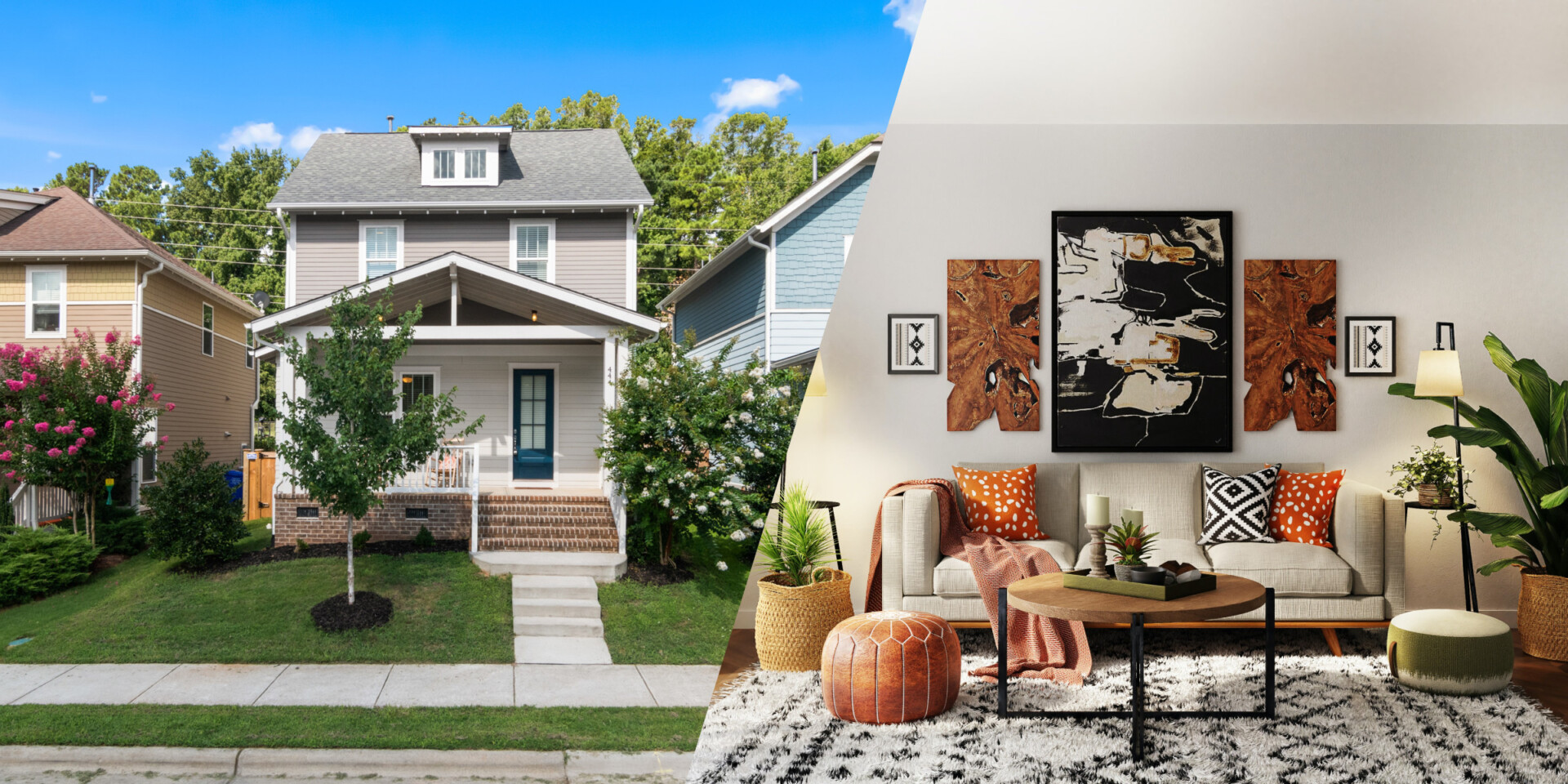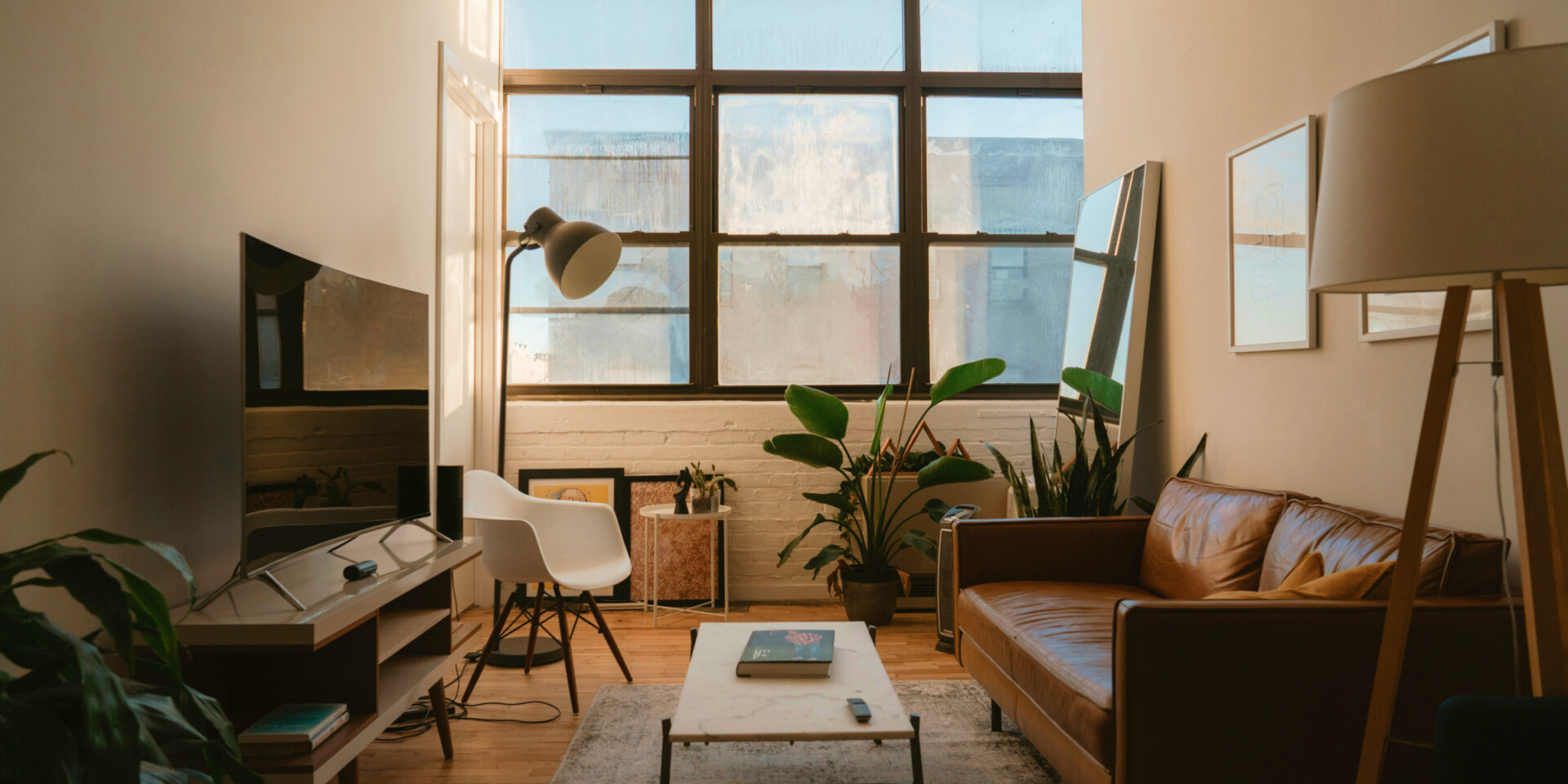Renting an Apartment vs. Buying a House: The Cost Breakdown

To buy or to rent?: that is the question. We’re not here to give you a definitive answer – everyone’s situations and goals are different. But what we can do is help you break down all of the costs involved in renting an apartment and buying a house to help you figure out what living option is right for you.
The costs associated with renting an apartment versus buying a house can vary significantly depending on factors such as location, market conditions, and individual preferences. Here’s a breakdown of the costs for each option (we’ve provided a wide range in each category to give an idea of how much to expect):
Renting an Apartment:
- Monthly Rent ($900 – $3000/mo): This is the most straightforward cost of renting an apartment. It’s a fixed, recurring expense that you’ll pay to the landlord or property management company.
- Application & Administrative Fees ($150 – $300): These are paid once at the time of application so the property can run a background check and vet your application.
- Security Deposit ($150 – 1 month’s rent): This one-time fee is the property’s insurance against damage or unpaid rent. It can vary based on your credit and rental history and is given back and the end of the lease if there is no damage to the apartment.
- Utilities ($100-$300/mo): Usually include electricity, gas, water, and internet/cable.
- Property monthly fees ($100 – $200/mo): These are mandatory monthly fees on top of your base rent. We tend to see them in the form of valet trash, pest control, boiler, and amenity fees.
- Renters Insurance ($5/mo+): In most leases, renter’s insurance is mandatory to protect your personal belongings in case of theft, fire, or other unexpected events. We recommend our partner Lemonade, who can get you rates as low as $5/mo!
- Parking ($0 – $200/mo): In some apartment complexes there is no fee to park, but you can choose to pay a premium for a reserved spot or private garage. In denser city areas with limited parking options, you may need to pay a mandatory monthly fee for a spot in a parking garage.
- Pet Fees ($200 – $500 one-time + $20 – $40/mo): Pets typically require a refundable pet deposit, a non-refundable pet fee, and monthly pet rent. Expect to pay 2x or 3x each fee with every additional pet on the lease.
- Moving Costs ($0 – $2000): While not a recurring cost, moving to a new apartment can involve expenses for hiring movers, buying packing materials, or renting a truck.
Buying a House:
- Down Payment (2023 U.S. Average: $26,250): This is the initial lump sum payment you make when purchasing a house. It’s typically a percentage of the home’s purchase price, and the larger your down payment, the lower your mortgage loan amount. The median US down payment is 13%.
- Mortgage Payments (2023 U.S. Average: $2,317/mo): This is the monthly payment you make to repay your home loan. It includes both principal and interest. The amount varies widely by state and is also based on the interest rate, loan term, and the size of your mortgage.
- Closing Costs (2023 U.S. Average: 3-6% of loan rate): These are fees associated with the home buying process, including appraisal fees, title insurance, and legal fees. They are typically paid at the closing when you finalize the purchase.
- Property Taxes (2023 U.S. Average: $2,690/year): Homeowners are responsible for paying property taxes to the local government. The amount depends on the assessed value of your property and local tax rates.
- Homeowners Insurance (2023 U.S. Average: $1,428/year): This insurance protects your home and belongings from damage or theft. It’s typically required by lenders.
- Private Mortgage Insurance (0.22% to 2.25% of your mortgage): If your down payment is <20% of the home’s purchase price, you may be required to pay PMI until you reach a certain level of equity in the home.
- Homeowners Association (HOA) Fees (2023 U.S. Average: $291/mo): If you buy a property in a community with an HOA, you’ll have to pay monthly or annual fees for services and amenities provided by the association.
- Utilities ($150 – $500): Similar to renting, you’ll need to pay for utilities like electricity, gas, water, and internet/cable. Homes tend to be larger in square footage than apartment units and will use more energy, and may require more water due to lawn care. Homeowners also tend to pay fees that apartment renters do not, like drainage, solid waste, street service, and wastewater.
- Maintenance and Repairs (Varies): Unlike renting, homeowners are responsible for all maintenance and repair costs, which can vary widely based on the age and condition of the home.
- Home Improvement and Renovation (Varies): While optional, homeowners often spend money on improving or renovating their homes over time.
So, why buy?
A lot of the current messaging around housing is “buy, buy, buy”. After all, owning a house builds equity and gives you total control over your living space. Investing in your own property vs. paying the financial equivalent to a landlord or apartment management group can be a more appealing way of spending that money. It’s a wonderful option for those who want to plant roots somewhere and enjoy the community of a single-family neighborhood. Individuals can also purchase homes as investment opportunities, and use those as primary or secondary income in the form of rentals. But buying is more expensive in the short-term, and may not be a feasible nor attractive option for everyone.
So, why rent?
In many ways, the pros of renting are often the cons of homeownership, and vice versa. Renting is cheaper in the short-term and is a great way to live a flexible lifestyle. For those who want to experience different cities or even different areas within a city over time, apartments are the perfect option. In areas where the cost of buying a home is exceedingly high, renting is a great way to enjoy a specific location without the financial burden of homeownership. Renting is also low-maintenance—literally. When your garbage disposal stops working, no need to head to your local hardware store to DIY a quick-fix. This offers both time and financial freedom for renters who don’t have to swallow the cost and energy of handling repairs.
There’s a lot to be excited about whether you buy or rent! Finding the perfect space to call home is one of the most important decisions you’ll make, and Smart City can help. Smart City Realty offers home buying and selling services in Houston, Austin, and Dallas-Fort Worth. And if you need an apartment in any of those locations + San Antonio, Chicago, Atlanta, or Denver—we got you.
Find Your Apartment Today!
Get Started







